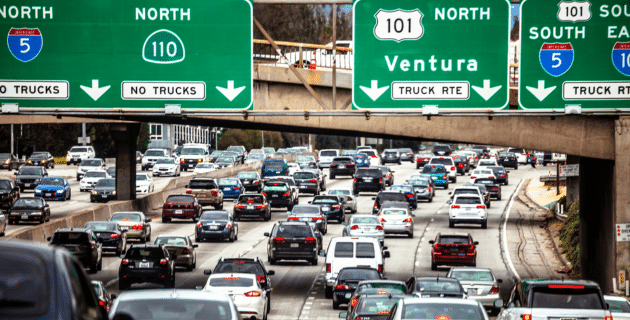We’ve all had that uncomfortable feeling of being tailgated. It’s not just an annoyance. It’s a dangerous behavior that can lead to an accident. But just how risky is tailgating and what can we do about it? Read on.
What is tailgating?
When you’re too close to the car in front of you, you’re riding “on its tail,” or tailgating. Tailgating is an aggressive behavior that can be mistaken for road rage, and even lead to it. Interestingly, even though drivers who tailgate seem to rush ahead, tailgating has little effect on getting there faster.
Why do people tailgate?
There are many reasons why people tailgate. Here are a few of the most common ones.
- Aggressive drivers tend to tailgate. These are the same folks who speed and cut it close when making lane changes. They also can quickly escalate into road rage episodes.
- Drivers who are impatient or frustrated may tailgate. They’re in a hurry and they want to get past the traffic to their destination.
- Intoxicated or drowsy drivers may tailgate without realizing it. Their state of mind causes them to misjudge the distance to the car in front of them.
- Young drivers sometimes tailgate. They do not fully understand the safe distance between cars and/or the consequences of this risky behavior.
- Distracted drivers may tailgate because they’re not paying attention to the road. They’re on their phones or fiddling with something in the car.
Almost always, drivers who tailgate have a false sense of security. They think they can stop in time. Yet it may take longer than you think. Stopping distance is directly related to the size and weight of your vehicle. A large truck will take much longer to stop than a small car. Sharing the road with vehicles of all sizes is important. You need to give yourself an adequate cushion of safety so you have enough time to react and stop your vehicle.
What are the effects of tailgating?
At the very least, you can make the driver in front of you nervous by tailgating. You may even cause them to drive too fast or shift lanes quickly which can cause an accident. They also may tap on their brakes to tell you to back off. That can trigger an accident or road rage incident. In a worst-case scenario, they can stop short, causing you to rear-end them. You may even cause a chain reaction of rear-end collisions.
Rear-end collisions make up about 23% of all crashes, according to the National Highway Traffic Safety Administration (NHTSA). These types of collisions cause approximately 950,000 injuries and 2,000 deaths each year.
Who is liable for a tailgating accident?
In nearly all cases, the driver who is tailgating is the person at fault in a rear-end collision. Note that a single at-fault accident could raise your insurance premium.
Learn the 3-second Rule.
If you’re alert and focused on the road, it takes you about 2 seconds to react to a roadway hazard. That means a safe following distance is at least 3 seconds or more.
Use the 3-second rule as a starting point. You can measure the distance in seconds this way:
- Find a landmark such as a mile marker or telephone pole.
- Start counting once the car in front of you passes that landmark.
- Count slowly until your car reaches the same landmark.
- That is the number of seconds that you are traveling behind the vehicle in front of you.
You will want to increase your following distance when the weather is bad. It’s recommended to use 4 seconds for wet weather and 10 seconds for snow and ice.
How should you react if you are being tailgated?
The last thing you want to do is to be rear-ended by a tailgater. If you are being followed too closely, you will want to take evasive action.
- Don’t engage or look at the tailgater.
- Don’t tap your brakes to tell them to back off. This can be construed as hostile and can cause the driver to react.
- Change lanes and allow the driver to pass.
- Maintain your distance from the driver. Keep as far away as possible.
- Practice defensive driving as you continue on your way.
- Be aware that your car’s crash avoidance system could cause you to brake automatically and suddenly. That may play a role in future tailgating incidents.
Your car is one of your greatest investments. Keep your car well maintained and protect it with the right insurance.
This article is furnished by California Casualty, providing auto and home insurance to educators, law enforcement officers, firefighters, and nurses. Get a quote at 1.866.704.8614 or www.calcas.com.
- California Casualty Earns Financial Stability Rating® of A, Exceptional, From Demotech, Inc. - April 28, 2025
- Music & Arts Grant Recipients – 2024 - December 13, 2024
- Understanding Auto and Home Insurance Rate Changes - December 3, 2024

